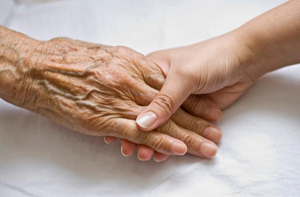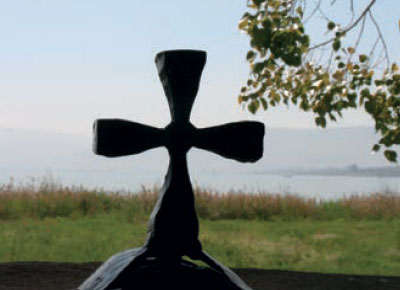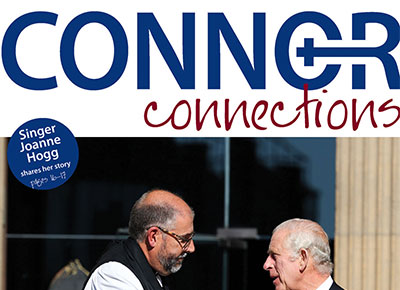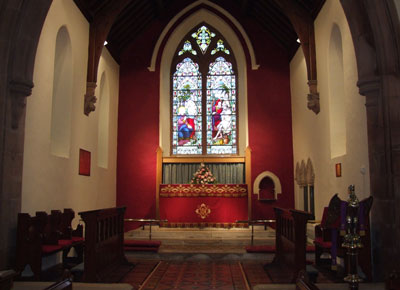Value of life and support for care emphasised
 The Church of Ireland’s strong opposition to euthanasia and support for hospice and palliative care has been affirmed in evidence presented to the Joint Oireachtas Committee on Assisted Dying.
The Church of Ireland’s strong opposition to euthanasia and support for hospice and palliative care has been affirmed in evidence presented to the Joint Oireachtas Committee on Assisted Dying.
The Rev Dr Rory Corbett, a member of the Church and Society Commission, addressed the committee at its invitation, alongside presentations on behalf of the Irish Catholic Bishops’ Conference, Presbyterian Church in Ireland, Methodist Church in Ireland, Irish Muslim Peace and Integration Council, and Humanist Association of Ireland.
In his remarks, Dr Corbett started from the position that assisted dying is ‘a euphemism in that the process is either suicide or … killing by a third party.’ The principle of affirming life, he noted, acknowledges both the right to life and the subsequent legal protection of life from the foundations not only of human rights law but also much of the criminal law.
“Beyond the legal underpinning affirming life is an acceptance that each individual life has purpose, value and meaning,” Dr Corbett said. “It is part of the Christian tradition to assert that every person’s life is of intrinsic value, but we can also get there from a secular position, in that our healthcare is predicated on this intrinsic value in the attempt to resuscitate a person who has collapsed in the street, or the time, money and energy expended on prevention of suicide programmes, premature baby care, or for those living with dementia.
“At the same time, quality of life can also be misused to suggest that a person’s life can be decided by others. It can lead to an assessment of what a person can do, and what they can contribute to society not what they are.”
His presentation emphasised that a civilised society cares for the vulnerable and that relationship is at the heart of what it means to be human – and therefore the basis of the care, cohesion and compassion that we must continue to seek as social values.
He added: “Individuals are made in the image of God, not nations or organisations. Treating every person with respect and dignity is a corollary of recognising the intrinsic value of every human life. Individual free choice has to take second place to achieve this.”
Dr Corbett suggested that the discussion undertaken by the Oireachtas was indirectly highlighting the inadequacy of hospice, palliative and end-of-life care available to the population at large. In addition, international experience from jurisdictions permitting assisted dying indicated a lack of management and oversight of the medical practices leading up to the ending of a life. In most of the jurisdictions in Europe with permitted assisted dying, the initial application was limited only to adults who had a terminal illness and were close to death, before being expanded to adults who had no medical illness but had no desire to live longer, and more recently it has been extended even to children and young people.
He also highlighted the need to consider the ethics of who should carry out an assessment and the procedure should this be legalised, although the Church and Society Commission remains firmly convinced that there is no place for assisted dying in a civilised society.
If a person seeks assisted dying because of a late-stage terminal illness, then a doctor, preferably their family doctor, would be able to confirm the medical diagnosis and situation. However, for the second medical doctor who might involved in the process, he or she would probably not personally know the patient or their background or be aware of the possibility of coercion by others.
If the decision to end a life were taken on social grounds, that would sit outside the expertise of a medical professional. If permission were to be allowed for assisted dying for purely social and not medical reasons, he contended that perhaps society itself should be prepared to take on the role of making the assessment and carrying out the procedure.
Clergy and lay chaplains minister daily to people living with terminal conditions, and their families, in hospitals, hospices, residential and nursing homes, and other settings in which care is given, and are likely to be very familiar with the state of mind of a person seeking assisted dying. In addition to its formal responses to the debate and proposed legislation on assisted dying, several dioceses run an annual appeal to raise funds for hospice care.
Dr Corbett also quoted the UK Supreme Court’s 2014 judgment on the issue, issued by its then President, Lord David Neuberger: “The vulnerability to pressure of the old or terminally ill is a more formidable problem. … The real difficulty is that even the mentally competent may have reasons for deciding to kill themselves which reflect either overt pressure upon them by others or their own assumptions about what others may think or expect.
“The difficulty is particularly acute in the case of what the Commission on Assisted Dying called ‘indirect social pressure.’ This refers to the problems arising from the low self-esteem of many old or severely ill and dependent people, combined with the spontaneous and negative perceptions of patients about the views of those around them.
“The great majority of people contemplating suicide for health-related reasons are likely to be acutely conscious that their disabilities make them dependent on others. These disabilities may arise from illness or injury, or indeed (a much larger category) from the advancing infirmity of old age. People in this position are vulnerable. They are often afraid that their lives have become a burden to those around them.”
© Copyright The Church of Ireland Diocese of Connor 2026 | Web Design by LD2.digital




